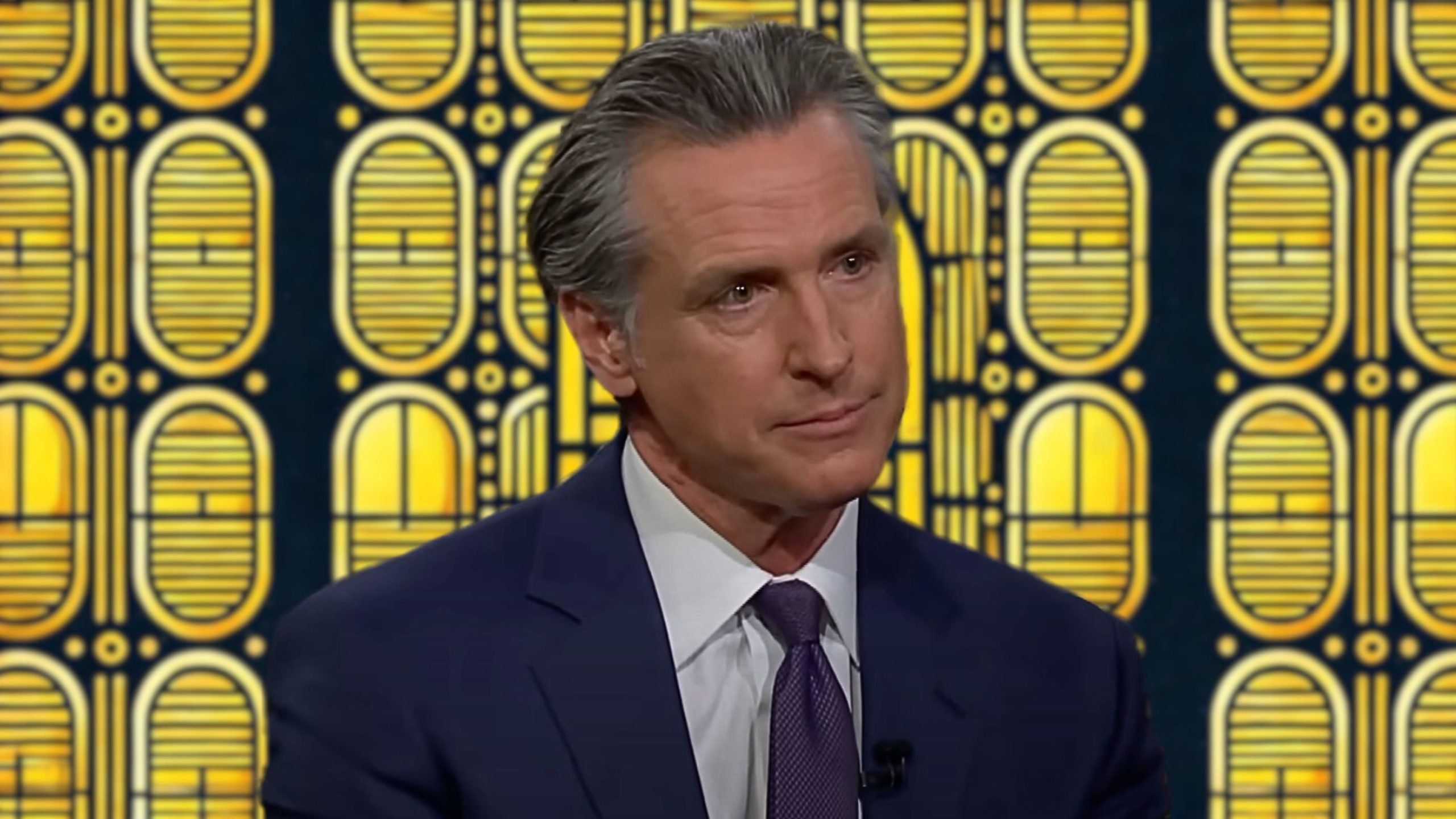In a world where politicians crave safe spaces from jokes, California’s latest move to suppress satire might just take the cake. California has decided that it’s time to put an end to all that pesky “political humor.” Yes, the state that brought us Hollywood is now terrified of a few biting punchlines, and naturally, satire site The Babylon Bee and outspoken attorney Kelly Chang Rickert are not having it.
The champion of online irreverence has just slapped the State of California with a lawsuit that reads less like legalese and more like a desperate plea for common sense. They’re arguing, quite reasonably, that California’s new laws—AB 2839 and AB 2655—are a massive overreach, a heavy-handed attempt to quash their First Amendment rights and kill the punchline before it even has a chance to land.
We obtained a copy of the lawsuit for you here.
But first, let’s backtrack for a moment: what are these draconian laws, and why did they even happen? In a nutshell, California’s governor, Gavin Newsom, got his feathers ruffled. Back in July, Newsom, apparently so thin-skinned that a parody video of Kamala Harris could pierce his carefully curated aura of poise, tweeted that such parody “should be illegal.”
The state legislature swiftly leaped into action, dutifully crafting laws that now demand political satire clearly label itself as satire. Because, evidently, nothing preserves the cutting edge of a joke like a flashing disclaimer that says, “Warning: This Is Supposed to Be Funny.”
It’s like telling a comedian to announce, “Prepare to laugh,” before delivering a punchline—a sure way to extinguish any humor from the room.
Newsom’s Joke-Free Zone: New Laws with a Convenient Agenda
So what exactly do these laws entail? The new legislation, signed by Governor Newsom with an air of grim satisfaction, allows government officials to step in and silence political parody that they deem “materially deceptive.” Translation: if it makes someone in power look bad or hurts their chances at the polls, the government now gets to play editor-in-chief. From the Attorney General to your local district attorney, state officials are suddenly arbiters of comedic taste, wielding the power to enforce takedowns and even seek damages.
And while Newsom might see himself as the hero here—defender of public trust against rogue jesters—what’s really happening is a good old-fashioned power grab, dressed up in the language of “protecting the electoral process.” The law essentially strips satire of its teeth, forcing creators to telegraph their intent lest someone, somewhere, might be misled into believing Kamala Harris really did try out for “America’s Got Talent.”
The lawsuit from The Babylon Bee and Rickert hammers this home. “We don’t trust the government to decide what is true in our online political debates,” they declare, and rightly so. Once the government starts policing humor, it’s not too long before all criticism—wrapped in satire or not—gets shoved into the same locked box. And that box, incidentally, is labeled “Do Not Open Unless You Want to Be Sued.”
Parody: An Endangered Species?
The irony here is staggering. The First Amendment doesn’t just protect polite discourse or agreeable speech; it exists precisely because political debate is messy, uncomfortable, and often incorrect. It shields our right to say things that might be offensive, incorrect, or yes, deceptive—because without that, democracy’s rough edges get filed down to nothing. But apparently, the legislators in California are less concerned about democratic principles and more about making sure their candidates aren’t subjected to those pesky internet memes.
“These broad and vague laws will chill speech and debate that criticizes politicians and their platforms,” the lawsuit argues as if that’s somehow a controversial point. What’s really chilling is the idea that a piece of content, because it bruises the ego of a candidate or calls into question the integrity of the election process, could now be erased at the whim of an irate governor. If politicians like Newsom are uncomfortable with people pointing out the absurdity of their actions—like, say, responding to a video parody by outlawing videos—they might want to reconsider whether they belong in public life at all.
The Battle for the Right to Laugh
Let’s not kid ourselves: this isn’t about “misleading” the public or safeguarding democracy. It’s about control. It’s about a group of powerful people in Sacramento deciding that humor isn’t allowed unless they’re in on the joke. And for creators like The Babylon Bee and Rickert, being forced to spell out the gag in advance isn’t just censorship—it’s death by clarity.
The lawsuit seeks injunctive relief, effectively pleading with the courts to keep these laws off the books before any more damage is done. The Babylon Bee and Rickert want nothing more than to keep the playing field open, a space where humor—dark, satirical, biting, or outrageous—can still shine a light on the often ugly underbelly of politics. As they put it: “Such censorship threatens the heart of public discourse.”
California, the land of endless sunshine, tech utopias, and mind-numbing bureaucracy, has suddenly found itself on the frontlines of a cultural battle over what constitutes acceptable speech. Will satire survive when the joke itself is put on trial? Will politicians need to start every policy debate with a laugh track to indicate it’s okay to chuckle?
For now, the comedians are fighting back. Because someone has to point out that, when a governor calls for a joke to be made illegal, the punchline isn’t just on him—it’s on all of us, too.










